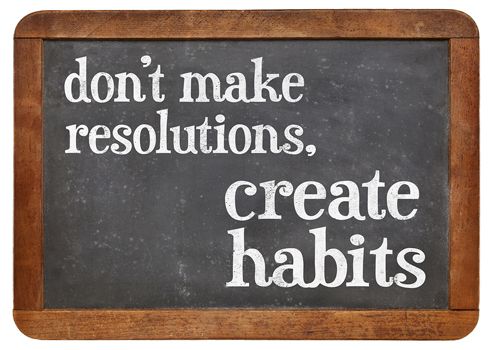Reading time: Less than 3 minutes
Do you think there ought to be some new year’s resolutions for writers? Let me suggest something that will work even better…
I know it’s resolution season. New year’s plans seem to lurk in blogs like dangerous creatures in swamps. But not here. I don’t believe in new year’s resolutions, mainly because they don’t seem to work.
Although 45% of Americans make such promises to themselves, fewer than 8% manage to keep them. But don’t let the statistics depress you. (Or, worse, don’t think you’ll be part of the tiny minority that can overcome them.) Instead, concentrate on something more positive and useful.
This relates to a little nugget I hid in this column a few weeks ago when I wrote a definitive guide to reducing writing stress. I’m not being immodest when I call it a “nugget” or even a “gem.”
After all, it wasn’t mine. It came from psychologist Peter Gollwitzer. His idea? Simplicity itself: If/then statements. As one of the world’s leading authorities on goals, Gollwitzer encourages all of us to talk to ourselves in the following way:
If I haven’t exercised by 9 am, then I must go for an hour-long walk after dinner. OR
If I want to spend time on Facebook, then I must write for 15 minutes beforehand. OR
If I’m going to watch TV, then I have to read 20 pages in a book, first.
This kind of planning, which allows us to consider contingencies (ie: when things go wrong or sort of wrong) is brilliantly effective. Here’s why: As soon as we make the statement, our brains automatically start checking our environment. They are searching for the “if” — rather like a bat looking for mosquitos or a dog seeking treats. And, once they find the “if,” the “then” follows automatically. No thinking required! We don’t even have to consciously track our goal.
Better yet, if/then statements don’t require any willpower. (Remember that sinking ship? We wake with the maximum amount of willpower every day and it runs out as the day wears on, like sand running through an hourglass.) If/then plans allow us to conserve our self-control for when we need it and compensate for it when we don’t have enough.
I can testify this system works. I started using if/then statements about a month ago and I find them astonishingly effective. I tend to use them to help myself manage difficult interactions. For example:
If I get an angry email from someone, then I will say “I won’t let this get under my skin,” and wait a day before replying.
If one of my kids tells me they don’t like what I’m making for dinner, then I’ll smile, shrug and say, “cook what you want, instead.”
If my back is sore, then I’ll stand up (or lie down) and do a five-minute stretch right away.
Almost a hundred studies have shown that deciding in advance when and where we will take specific actions can double or triple our chances of success.
And, of course, if/then statements (psychologists call them implementation intentions) can help writers as well. Here are some you might want to consider adopting:
If I haven’t written by 9 am, then I will immediately spend 15 minutes writing.
If I catch myself saying negative things about my writing [i.e.: “my boss is going to hate this; I’m such a boring writer”] then I’m going to read a positive memo someone has written to me [have this saved on your desktop for easy reference!]
If I really, really, really don’t feel like writing then I’m going to identify a nice reward I can give myself for writing today.
If I’m procrastinating about writing then I will make a list of all the things I need to do as part of the job (e.g. researching, interviewing, mindmapping, writing a rough draft, self-editing) and I’ll begin by doing the one that will take the least time.
If I’ve written at least 500 words, then I can quit writing for the day.
This list is not definitive. We all have our own shortcomings or blocks with respect to writing. Identify yours and then come up with an if/then statement to deal with it.
And this column is not a resolution. It’s just one more arrow in your quiver as you work to turn yourself into a productive writer in 2016.
Have you ever used if/then statements? What did they do for you? We can all learn from each other so, please, share your thoughts with my readers and me in the “comments” section, below. And congratulations to Tom Brown, the winner of this month’s book prize, Writing in Bullets by Kim Long for a Dec. 15 comment on my blog. Anyone who comments on today’s post (or any others) by Jan. 31/15 will be put in a draw for a copy of How to Write, by Richard Rhodes. To leave your own comment, please, scroll down to the section, directly underneath the “related posts” links, below.


